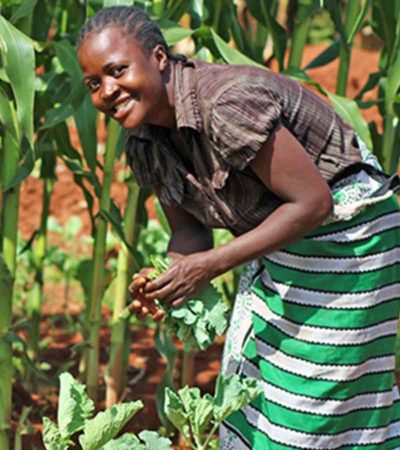A Women Farmers’ Cooperative on a Mission to Decrease Hunger
In Nigeria, one woman is leading her community to use sustainable farming methods, as well as technology, to thrive. A group of women farmers in Nigeria play a pivotal role…
Read More
An invasive crop pest is spreading across Africa. It threatens maize harvests in particular, and food security more broadly. It’s called Fall Armyworm and we can do something about it.
Governments, businesses, civil society, the research community, and foundations must mobilize to assist Africans in combatting Fall Armyworm. To effectively manage this agricultural threat, we need to help African countries and farmers respond rapidly and prevent major damage before it greatly affects the world’s food supply and exacerbates global poverty and hunger.
The good news is, we largely know how to solve this issue. The Americas have successfully controlled the pest and have a lot of know-how and experiences to share. By working together, we can help Africa tackle this challenge and build resilience to manage future agricultural threats.
Learn more about this crop pest, why it’s a problem, and what we’re doing about it in this fact sheet.
In Africa, the Fall Armyworm’s presence is confirmed in 38 countries and suspected in 9 additional countries (FAO, Janurary 2018).
The Fall Armyworm feeds on over 80 different crops including maize, rice, sorghum and sugarcane (CABI, September 2017).
It could cause losses of 8.3 million to 20.6 million metric tons of maize in 12 African countries annually (CABI, September 2017), which could feed 40.8 million to 101 million people.
We are seeking partners interested in providing financial, technical and other in-kind support. Email fallarmyworm@usaid.gov to connect with us.
In collaboration with international and national research and development partners, Feed the Future developed this Fall Armyworm Technical Guide to share the latest protocols related to integrated pest management to control this pest. We intend to revise and release subsequent editions of this Technical Manual as more evidence emerges on effective management of Fall Armyworm.
Feed the Future strengthens the capacity of African communities, institutions and governments to manage the Fall Armyworm through a range of sustainable and effective integrated pest management strategies that protect people and the environment. Learn more in this fact sheet.
In a keynote address at the annual World Food Prize in Des Moines, Iowa, United States Agency for International Development Administrator Mark Green announced a call to action to combat the Fall Armyworm. Check out this press release to learn more.
According to the Food and Agriculture Organization of the United Nations, December 2017.
This brief, authored by the Feed the Future Enabling Environment for Food Security project, offers timely considerations for mitigating and addressing Fall Armyworm in Africa in the near and long term.
In Nigeria, one woman is leading her community to use sustainable farming methods, as well as technology, to thrive. A group of women farmers in Nigeria play a pivotal role…
Read MorePhoto Credit: West Africa Trade and Investment Hub February 24 marks the grim second anniversary of Russia’s invasion of Ukraine. The invasion not only brought suffering to millions of Ukrainians,…
Read MoreSource: USAID On this year’s International Day of Women and Girls in Science, learn about the contributions and challenges these researchers face Every year, International Day of Women and Girls…
Read MoreWomen have always worked in agrifood systems, but these systems have not always worked for women. That’s because barriers have stood in their way, preventing them from making their fullest contributions. Last year, the UN Food and Agriculture Organization’s (FAO) “Status of Women in Agrifood Systems” report showed us just how slow progress has been in closing the gender gap in agriculture over the past decade. Their access to irrigation, livestock, land ownership and extension services has barely budged over the past decade. Also, they are facing these challenges at a time of immense global shocks.
Read More